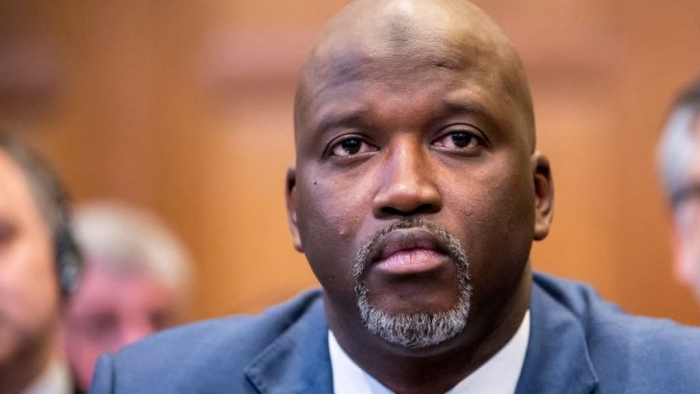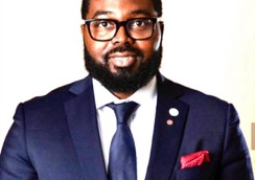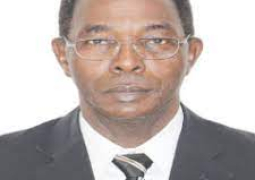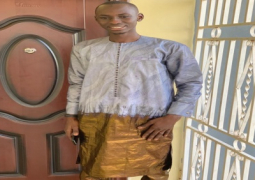
The world has witnessed a lawyer with the skills, a man with the courage and a warrior with unbeatable willpower in bringing a halt to the atrocities and genocide occurring against Rohingya Muslims in Buddhist-Majority Myanmar. Mr Abubacarr Tambadou, the Attorney General and Justice Minister of Gambia, filed a lawsuit against Nobel Laureate Aung San Suu Kyi’s country at ICJ for genocide under the Genocide Convention in November 2019. In response to that, the ICJ has ruled against any further genocidal activities by the Myanmar authorities which brought, in turn, a much-awaited postponement to the most brutal “crimes against humanity” in recent times.
Rohingya crisis is a long-standing issue of Myanmar. They are Muslim ethnic minority group living in Arakhan state of the country. Their history of being tortured, killed and victimised in other forms dated back to decades. After being denied citizenship under the 1982 Citizenship Law, Rohingyas became one of the largest stateless population of the world. Following the previous waves of state-run violence against this ethnic group in 2012 and 2016, the recent atrocities against them started August 2017 including mass killing, sexual violence, widespread arson, etc. This ‘ethnic cleansing’ campaign of Myanmar government led by state military has resulted in killing of thousands of Rohingyas and fleeing of around 700,000 people into neighbouring Bangladesh creating biggest refugee crisis of the century.
Little Gambia is acting for the whole world
Whatever happened in Myanmar is nothing but genocide. Although the Myanmar authority denied all the allegations since the beginning, the reports and investigations have crystal clearly shown to the whole world that it was “crimes against humanity” and was a clear violation of 1948 Genocide Convention. But none of the 149 countries that signed this Convention came forward to take any action against Myanmar. Gambia, one of the smallest countries in Africa with 2 million populations and a country of $1.48 billion GDP, took this unprecedented legal challenge. Not only that, Gambia was neither affected nor sufferer in any way of these atrocities, as Myanmar sits roughly 7,000 miles away from them. Still why Gambia stepped forward when rest of the world was silent in this regard?
Abubacarr Tambadou is the man behind the story of such challenge. It is his personal endeavour, in response to the call of humanity, to take such a big step of dragging a nation to the world court in order to hold them responsible for the genocide.
An unprecedented lead by Tambadou
Mr Tambadou, who worked for years as a lawyer at the UN tribunal focusing on the 1994 genocide in Rwanda, visited a Rohingya refugee camp in Bangladesh in May 2018. Conversation with the Refugees, and their pain, reminded him of Rwanda’s history of government-led atrocities which resulted in loss of about 800,000 lives over 100 days as well as an estimated 250,000 sexual assaults on women in the East African Country.
“As I listened to the horrific stories – of killings, of rape, of torture, of burning people alive in their homes – it brought back memories of the Rwandan genocide,” Tambadou said in an interview. “The world failed to help in 1994, and the world is failing to protect vulnerable people 25 years later”. [2] He further added, “I saw genocide written all over these stories. Another genocide is unfolding right before our eyes, yet we do nothing to stop it.”
The enormous challenge Abubacarr Tambadou taken despite several ifs and buts also linked and instigated by his own bitter past while he started his legal career in Gambia which was under the ruling of the then dictator Yahya Jammeh. Jammeh ruled this African country for long 22 years before fleeing to Equatorial Guinea in 2017 and caused widespread human rights abuses including killing of more than 70 people.
This 47 years old Gambian grew up in the Capital, Banjul, as one of the middle children among 18 siblings. He belonged to a Gambian traditional middle class polygamous Muslim family and his father had three wives. He graduated from Warwick University in the UK and started to work as a public prosecutor in his country initially. Being politically conscious about the undemocratic chaos in the country, Tambadou along with his friends began to be vocal against the ongoing human rights violations.
In April 2000, President Jemmeh’s obedient security forces opened fire on crowds of peaceful protesters, killing 14 students, a Journalist and Red Cross volunteer. Following this incident, several of Tambadou’s close friends were prosecuted and persecuted. Due to the fear of having the similar fate like his friends, Tambadou had no other options but to self-exile that led him to begin his career in international arena. He exceled in his new career in international justice and achieved the opportunity to work as an UN prosecutor to try the ringleaders of Rwanda genocide at International Court of Justice. He was responsible for the prosecution of former Rwandan Army chief Maj-Gen Augustin Bizimungu.
After a successful career as an international lawyer, Tambadou returned to Gambia in 2017 when dictator Jemmeh has fallen. He was offered the position of Justice Minister in the cabinet of President Adama Barrow – the Gambia’s first new leader for 23 years.
Tambadou further said, “Part of the reason we were motivated to be involved in this case was because of our own experiences. Had the international community took up this responsibility at the time and condemned the former President, I don’t think we would have gone through two decades of terrible atrocities”.
Fearlessness
It was Mr Tambadou’s fearlessness that played the main role of all that was behind this legal challenge against Myanmar. It was his courage that contributed to the stopping of genocide that was happening in Myanmar against 3 million Rohingyas. It was his personal drive that introduced a global accountability for the Rohingya genocide.
Simon Adams, head of the human rights organisation the Global Centre for the Responsibility to Protect, said in this regard, “There was only one man with the courage, skills and humanity to try to hold Myanmar accountable for the alleged atrocities”.
There were several hurdles obviously that Mr Tambadou had to cross. International politics was involved and there was huge risk for his country to be targeted. Besides politics, business and trading relationships were something to be taken on board. Moreover, a legal challenge like this involved enormous expenses that could possibly turn out as an ambitious risk for a tiny economy like Gambia.
But nothing could stop Mr Tambadou. His courage, his fearlessness triumphed at the end. Simon Adams continued, “Some were afraid of retaliation from the Chinese. Others said it wasn’t a good time, was too politically risky. I was impressed by his fearlessness. He realised what would be coming pressure-wise, but he was developing a strategy to deal with it”.
The Whole world has praised this humanitarian fighter as well as his country Gambia for this historic legal challenge. He has elevated the status of the world court i.e. International Court of Justice as a mechanism to stop genocide. While many had given up on the ICJ, Mr Tambadou has single-handedly demonstrated the power of international justice mechanisms as well as sparked hope for justice for the Rohingyas. It has given hope to over 3 million Rohingyas worldwide that they might receive some measure of justice, at a time when they felt that the whole world had ignored their plight. His work has become a beacon of light for the entire world. Now the world owes to this noble man the Nobel Peace Prize which he righteously deserves.
Written by: Barrister Mizanur Rahman
Lawyer & Writer
London, UK




